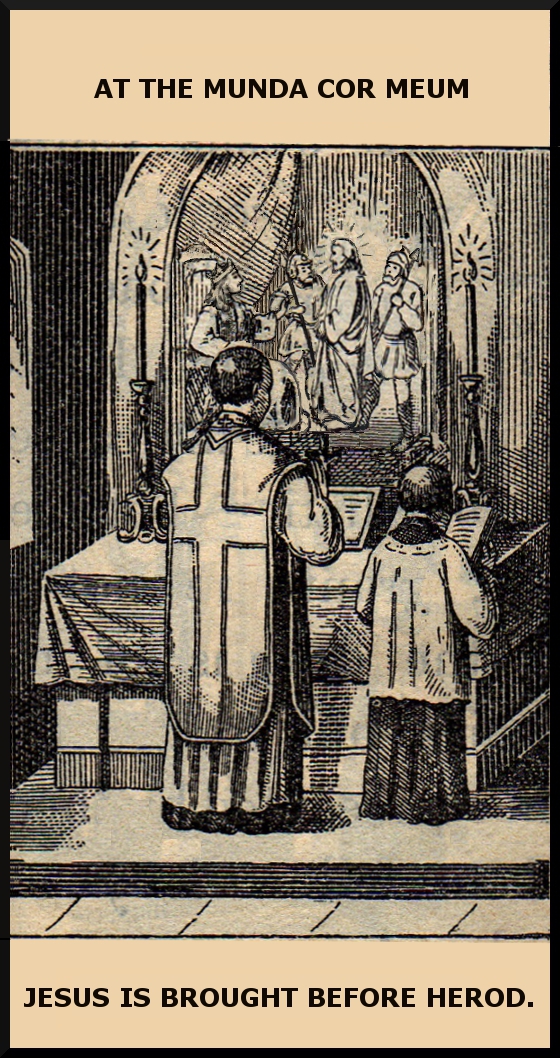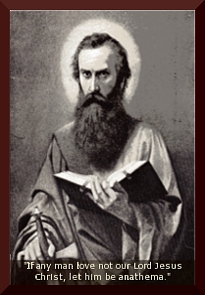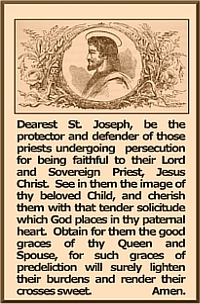“Cleanse my heart and my lips, O Almighty God, Who cleansed the lips of the Prophet Isaiah with a burning coal; in Thy gracious mercy deign so to purify me that I may worthily proclaim Thy holy Gospel. Through Christ our Lord. Amen.”
The reference to Isaiah and the burning coal signifies that God’s grace is like a fire which burns out the dross of sin, and enkindles in the heart a love of God and heavenly things. After the prayer and blessing, the priest is ready to proclaim the Gospel in a recollected and edifying manner, “For the lips of the priest shall keep knowledge, and they shall seek the law at his mouth; because he is the angel of the Lord of hosts.” – (Malachi 2:7)
We may consider Our Lord standing before Herod, and not speaking a word. He who is the Word, who is Wisdom Itself, remains silent because “Wisdom will not enter into a malicious soul, nor dwell in a body subject to sins.” Herod asks questions, not to learn, not to open his heart to Jesus, not to repent of his evil deeds, but to satisfy his curiosity. He delights in the prospect of being privy to a private showing of signs and wonders. When Jesus refuses to speak, He is mocked and ridiculed.
“Lord Jesus Christ Who before Herod didst for my salvation suffer the same charge of crimes against Thee without returning the least word to justify Thyself, grant that I may receive Thy Word with all purity so that Thy grace may enable me, O Divine Master, to be meek and humble of heart. Amen.”
The “Munda cor meum” of the N.O. was truncated by eliminating the rich Biblical reference of unworthiness and sinfulness as found in Isaiah. Also excised were the words of pleading with humility, “in Thy gracious mercy deign”. What remained is this: “Almighty God, cleanse my heart and my lips that I may worthily proclaim your gospel.”




